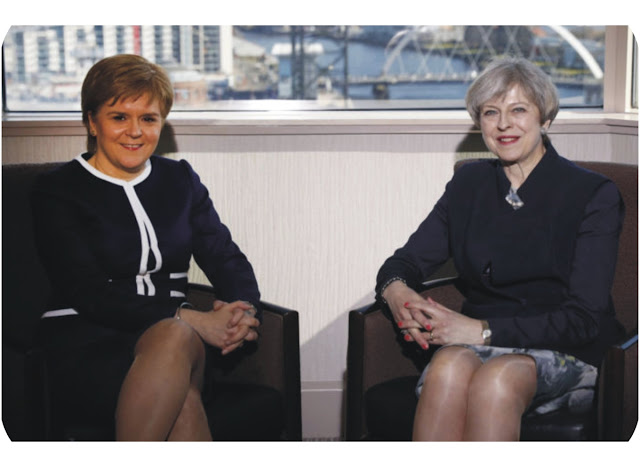Again First Minister of Scotland Nicola Sturgeon attack
flexes muscle with Theresa May over her alleged “very hard” Brexit caused the
recent slowdown of the UK’s GDP in the first quarter of this year 2017.
Sturgeon’s attack came after the Office of National Statistics
(ONS) announced the 0.3% growth of the GDP, which is far below the 0.7 that was
recorded in the previous year’s last quarter.
Though the slow growth of the GDP was being envisaged by
some economist, due to the level of inflation in the country that has forced the
public to fasten their seatbelt.
Thus, the First Minister seized the opportunity to call on
Theresa May to allow the UK to keep membership of the EU single market.
She told Sky News: “I don’t think there’s any doubt we’re
starting to see the signs of Brexit on the economy and particularly given Theresa
May’s determination not just to take the UK out of the EU… but to pursue a very
hard Brexit is having that impact on the economy.
“I think the GDP figures should be setting alarm bells
ringing and it underlines the importance of making sure that there are voices
there arguing for a common sense outcome.
“We’ve argued that albeit the UK’s leaving the EU, we should
be seeking to remain in the single market because that helps to obtain jobs and
investment and it’s the best outcome for our economy.”
The ONS said there were falls in “several important
consumer-focused industries” including retail sales and accommodation, due in
part to prices increasing more than spending.
The trend has been causing consumers a lot of discomfort
since the start of 2017, as inflation rises to its highest rate for over three
years now.
Also, the squeeze affecting household spending power has
been made worse by gloomy retail sales in the UK, as they record their greatest
fall for about seven years now.
Richard Berry, the founder of the currency specialists Berry
FX, said: “The underwhelming performance of the economy in the first quarter
put the Pound on the back foot rather than the canvas.
"Sterling didn't go off a cliff, largely because an
anodyne number had been priced in, but the weakest output since before the
Referendum has certainly added to the sense of uncertainty."











No comments:
Write comments